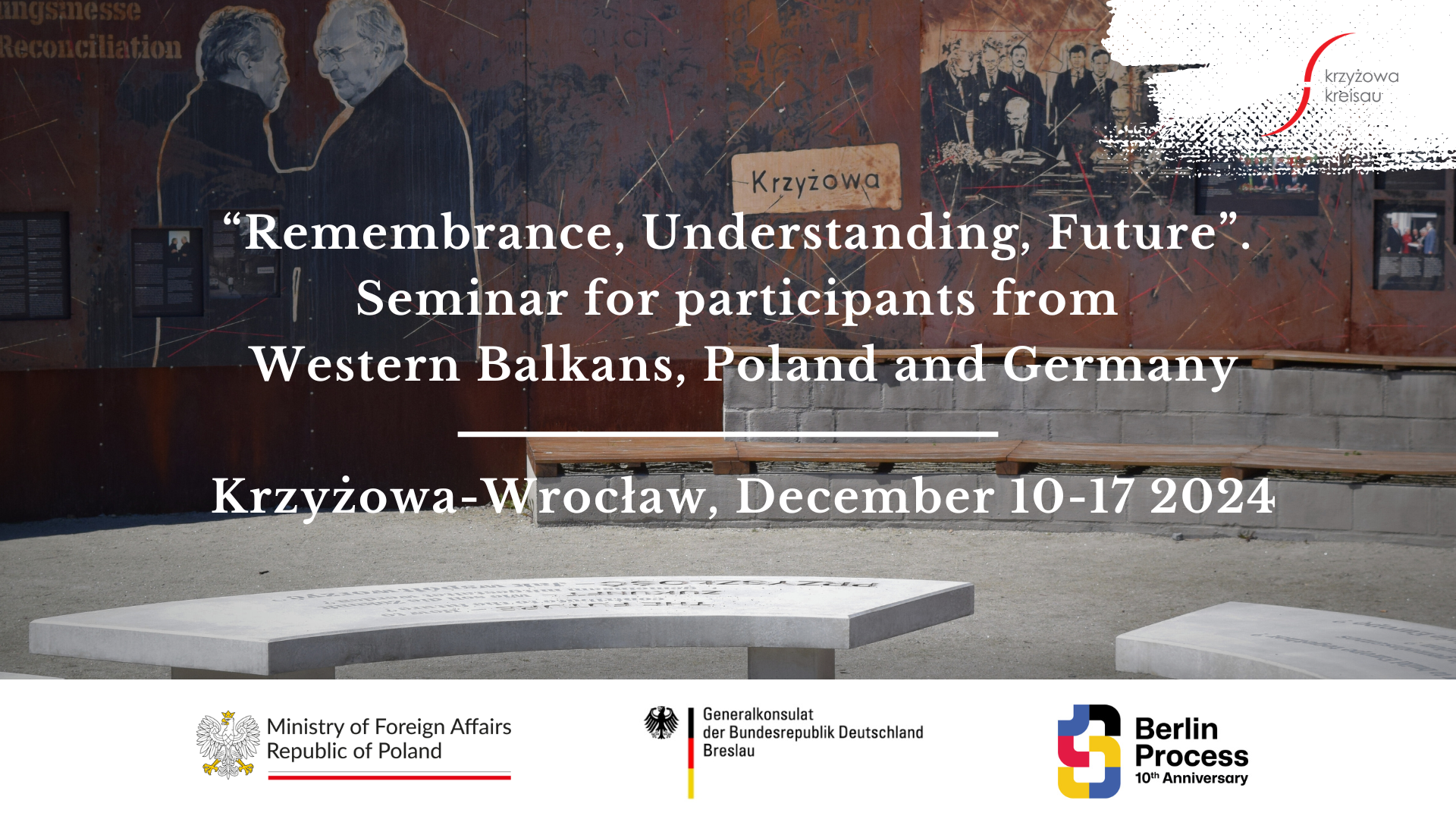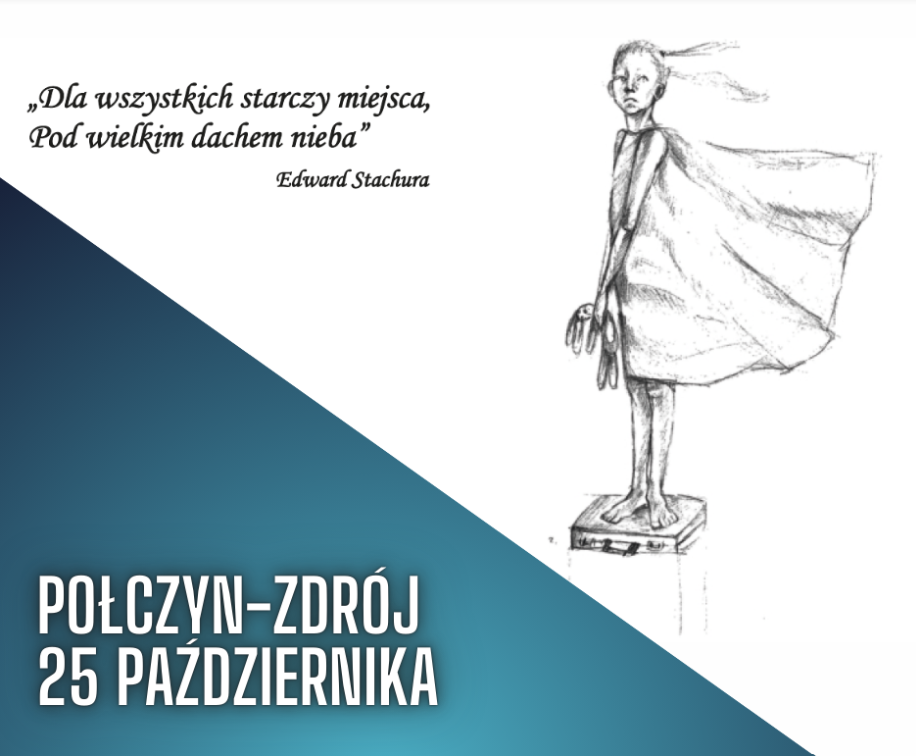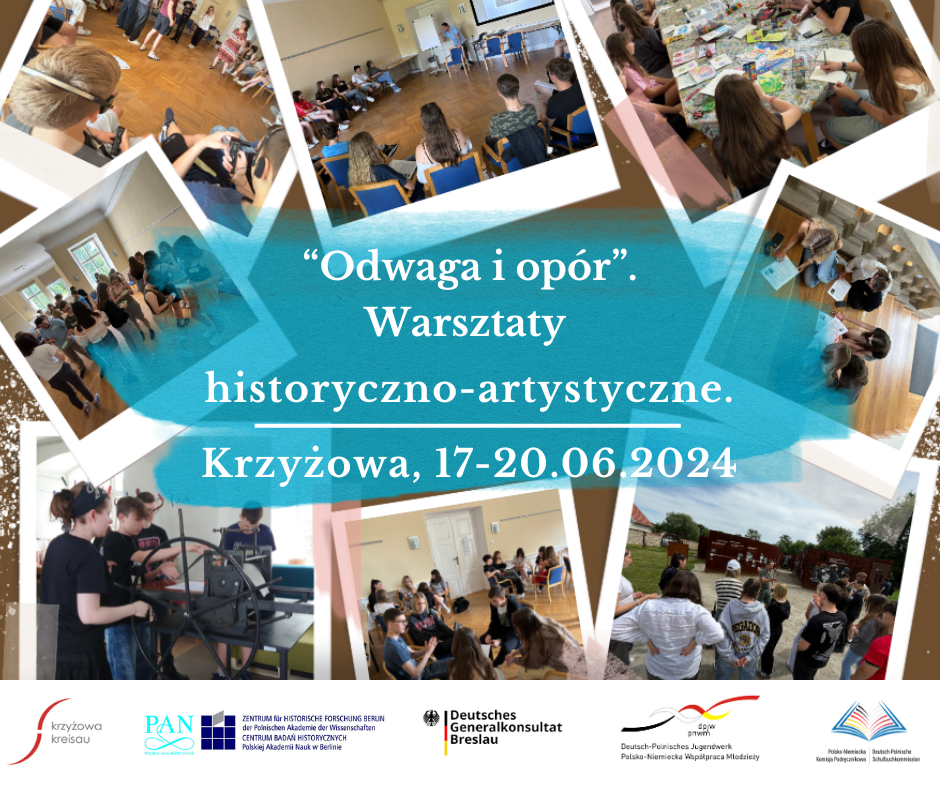On October 25, Połczyn-Zdrój will host a series of events dedicated to commemorating stolen children, victims of forced Germanization. The program includes an international debate, educational workshops, meetings with witnesses of history, and the unveiling of an educational multimedia display. The display will be placed near the monument honoring the victims of forced Germanization conducted at the Lebensborn center, which operated in Połczyn-Zdrój until the end of World War II.
One of the invited guests is Dr. Tomasz Skonieczny, Deputy Head of the European Academy of the Krzyżowa Foundation. He will participate in the debate and lead special workshops for teachers and school youth.
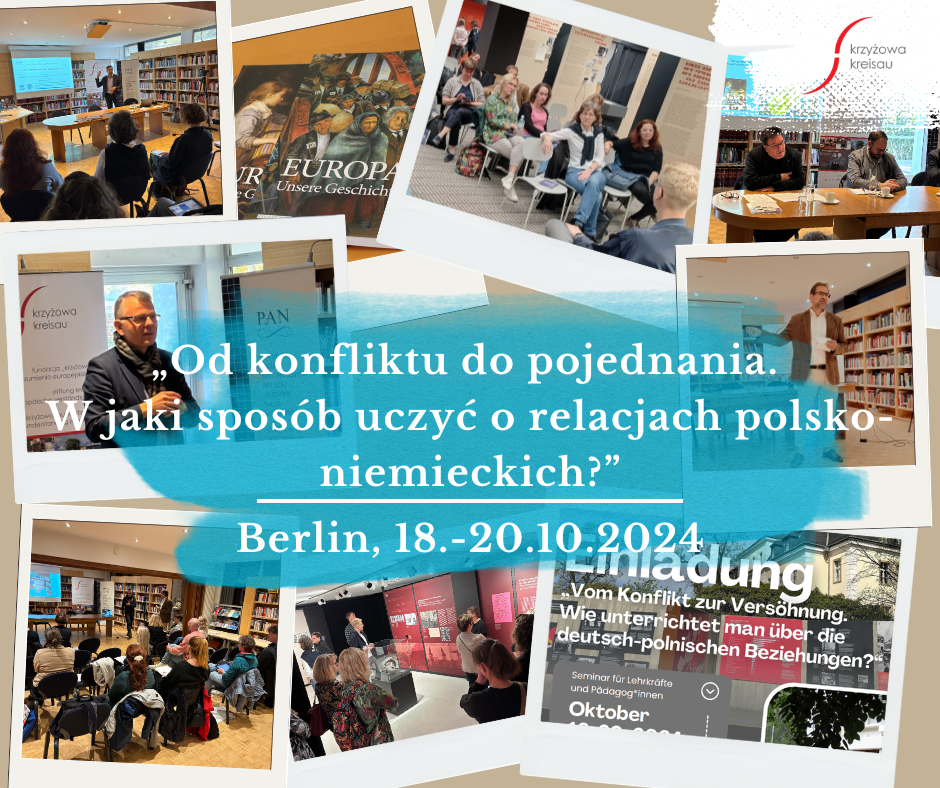
From October 18 to 20, 2024, the seminar "From Conflict to Reconciliation: How to Teach About Polish-German Relations?" took place in Berlin, aimed at teachers and educators working with German school youth.
The seminar sought to deepen participants' understanding of the history of Polish-German relations (from 1939 to today), explore differences and similarities in Polish and German memories of World War II, and present the experiences of educators engaged in the Joint Polish-German Textbook Commission.
A total of 24 participants took part in the seminar.
Read more: Seminar for Teachers and Educators | October 18–20, 2024, Berlin
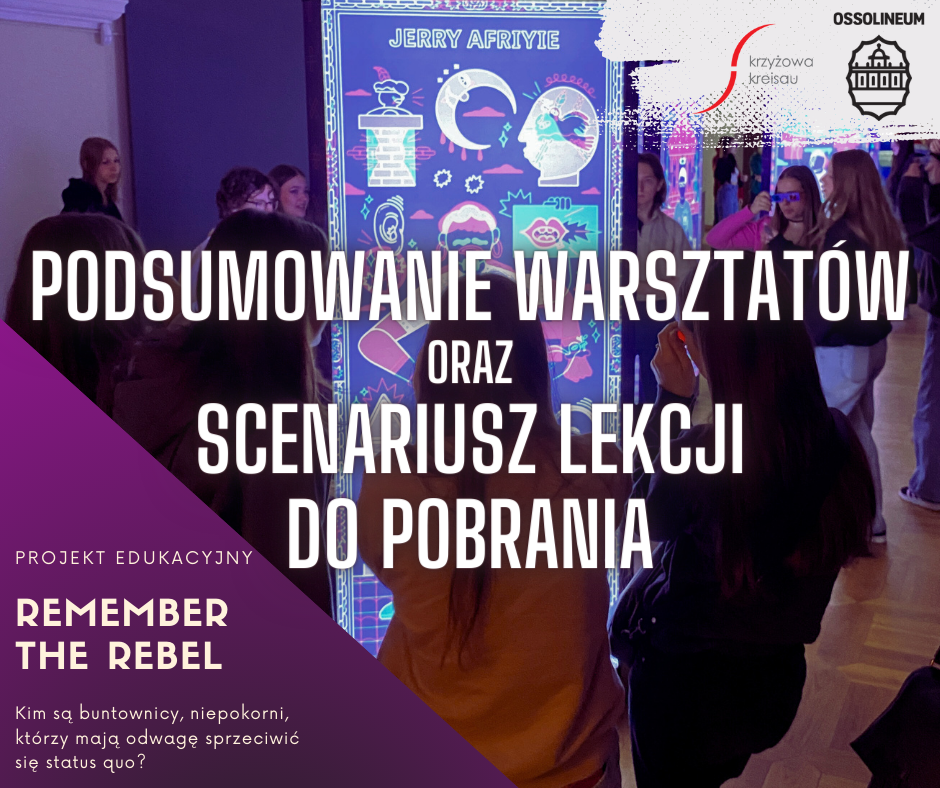
From the second half of February until the end of April, Krzyżowa Foundation conducted workshops on civic education as part of the project 'Remember the Rebel'. Their aim was to raise discussion about the foundations of democracy, the relevance of statutory law to the changing needs of society and the limits of civil disobedience.
The workshops were conducted at schools and at the Ossoliński National Institute in Wrocław, where an exhibition presenting the profiles of nine people who had the courage and determination to defy the status quo was on display throughout April.
A total of 437 pupils from Poland took part in the workshop.
For Polish teachers who are interested in the topics addressed by the project, we have prepared a special e-publication. It includes a lesson scenario (available only in Polish) adapted to the Polish school curriculum, and supplementary materials.
Read more: Summary of the workshops on rebels + lesson scenario
European Academy

The creation of this website was supported by:

Krzyżowa Foundation for Mutual Understanding in Europe
Krzyżowa 7, 58-112 Grodziszcze, Poland
phone: +48 74 85 00 300
fax: +48 74 85 00 305
e-mail: sekretariat@krzyzowa.pl
Site map
- About the Foundation
- Activity
- Krzyżowa for Ukraine
- International Youth Meeting Centre
- Memorial Site
- European Academy
- Innovation and Development Office
- Green Krzyżowa
- Private Kindergarten ZIELONA KRAINA
- Bookshop
- Publications
- Pedagogue Blog
- Projects
- Krzyżowa/Kreisau
- Support Us
- Media
- Contact


